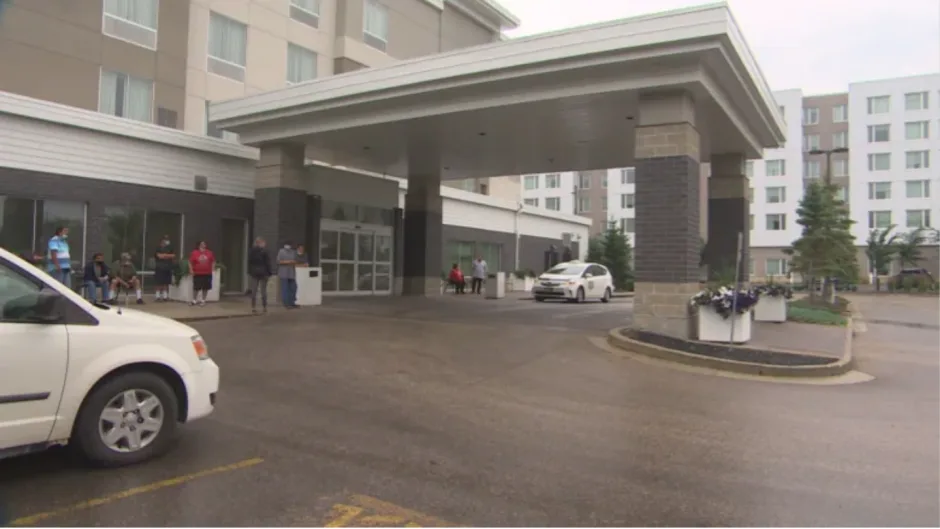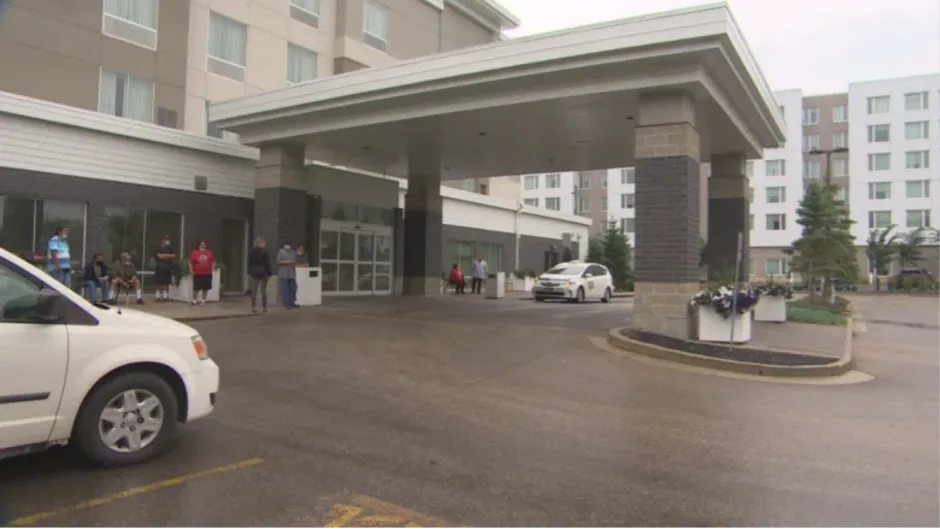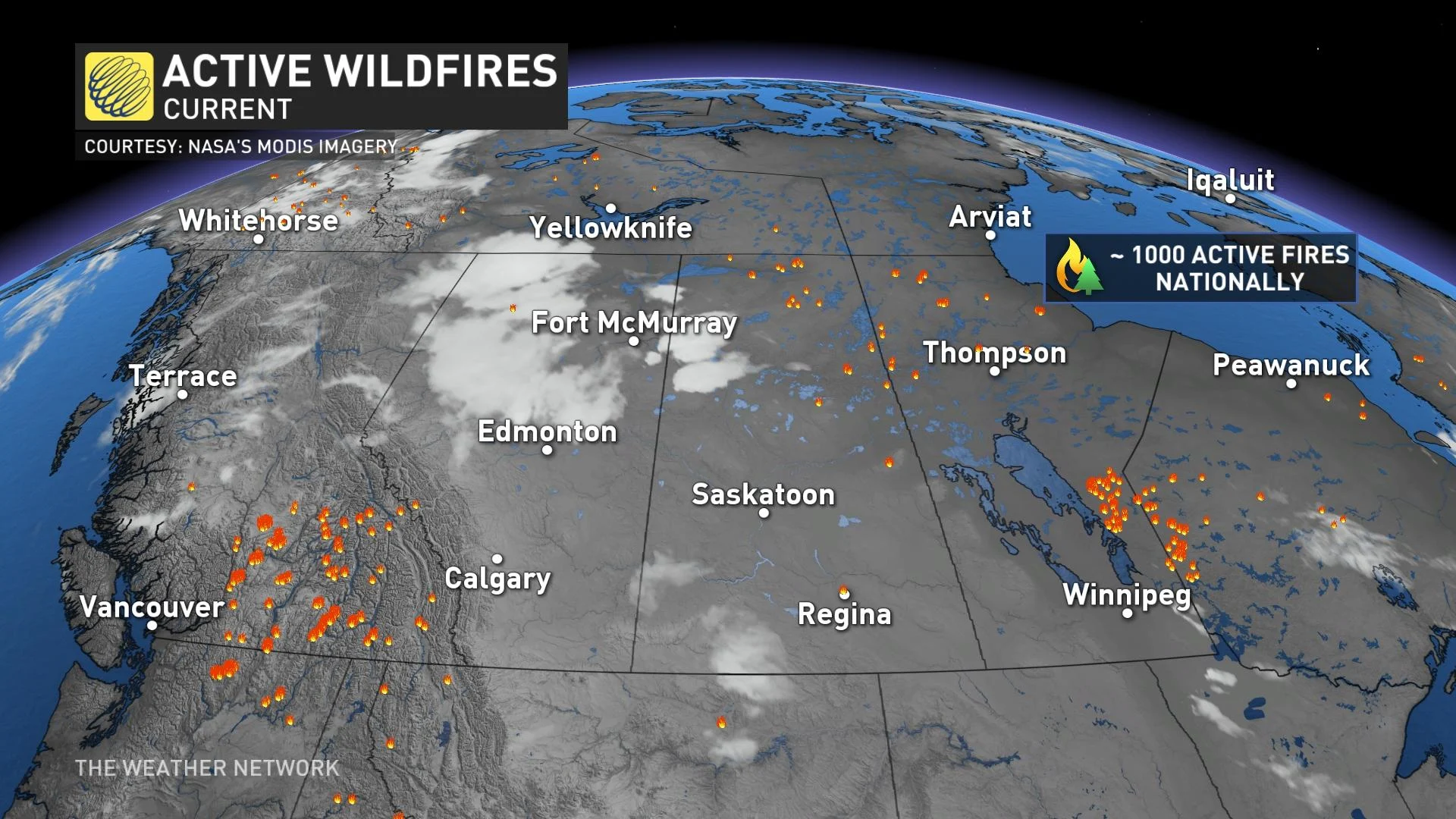
Wildfire evacuees brace for extended stay in Winnipeg hotels
More than 1,300 people from First Nations in Manitoba are now staying in hotels in Winnipeg and Brandon after escaping wildfires with no idea when they might be able to return home.
Forest fires burning out of control and smoke continue to threaten communities east of Lake Winnipeg, including Berens River, Bloodvein, Little Grand Rapids and Pauingassi First Nations.
For some, the journey out was harrowing.
On Tuesday night, a bus carrying evacuees broke down near Hollow Water and had to be rescued by locals.

More than 1,300 people are now staying in hotels in Winnipeg and Brandon after escaping wildfires in the province. (Walther Bernal/CBC)
Amanda Duck was on that bus. She said they had to wait two hours for another bus to come. She didn't arrive in Winnipeg until 4 a.m.
Before she left, she said she could see the flames encroaching on her community.
"Seeing that fire was like a shock," she said.
FLAMES ON EITHER SIDE OF THE BUS
Roy Moskotaywenene of Bloodvein First Nation said he could see flames on both sides of the road when he was leaving his community by bus.
"There's kids, there's elders and there's afflicted people inside the bus, and then they have to drive right through the fire."
Aurillia Moar left Little Grand Rapids earlier this week and is now taking care of her three granddaughters while living in a hotel.
"I feel very emotional right now. Everybody just wants to go home," she said.

Current fires as of July 22, 2021.
RELATED: Up to 120 Canadian Armed Forces sent to help with Manitoba fires
Moar had to leave her cat, Milo, behind. She said she's worried about what might happen to him while she's gone. She said bears have tried to get into her home before, and she's worried it might happen again.
She said she's also not used to city life and is concerned about keeping her grandkids safe while they're in Winnipeg.
'EVERYBODY'S ANXIOUS AND THEY WANT TO GO HOME'
Close to a hundred people were expected to be evacuated from Little Grand Rapids First Nation Wednesday.
Clifton Keeper's wife is one of them. He arrived in Winnipeg on Monday.
Some people in the community did not want to leave, but the smoke was so bad it wasn't safe for them to stay, he said.
"You couldn't even see 100 metres ahead of you. That's how bad it was," he said.
It's the second time in three years the First Nation has had to be evacuated because of wildfires, so it's a very difficult situation for people, he said.
"Everybody's apprehensive, everybody's anxious and they want to go home. I myself want to go home," he said.
To make matters worse, the fires damaged hydro lines in the area, cutting off power to seven communities in eastern Manitoba, including Little Grand Rapids.
Keeper says many people in the community have wild game stocked up in their freezers.
"If that goes bad, we have a whole different situation," he said.
For now, the small, tight-knit community is trying to band together to support one another, he said.
"We try to help each other out as much as possible," he said.
As of Wednesday, there were 138 active wildfires across the province.
KEEPING KIDS BUSY
Some Winnipeg organizations have organized activities for the children while they're in the city.
The kids get picked up by bus in the morning and get to do a variety of activities for the day, said Todd Laforte with Winnipeg Aboriginal Sport Achievement Centre.
"One of the things we've kind of focused on as a team is kind of trying to make it like a vacation for the kids instead of an evacuation because they've been through such a hard time for over a year now, and certain communities this is their second evacuation in a short amount of time," he said.
Ma Mawi Wi Chi Itata Centre has been providing programming inside the hotels while also taking the kids out for day trips.
If you see one of the groups out and about, please remember to be understanding, said program leader Bethany Wilson.
"We do face a lot of discrimination here in our own city and when there's a big group of kids, you can be a target, so be kind," she said.
This article, written by Sarah Petz, was originally published for CBC News. Contains files from Erin Brohman and Patrick Foucault.